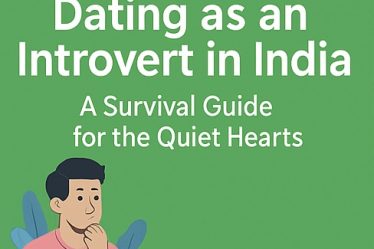
In the beginning, it feels like a dream—constant attention, affectionate messages, surprise gifts, and promises of forever. But when someone turns on the charm fast and hard, is it sincere love or something more calculated? Knowing the difference between love bombing and genuine affection can save you from emotional burnout, confusion, or worse—a manipulative relationship.
This article explains what love bombing really is, how it differs from healthy affection, why it happens, and most importantly, how you can spot red flags and build truly supportive relationships.
What Is Love Bombing?
Love bombing is a manipulation tactic disguised as affection. It involves overwhelming someone with praise, attention, gifts, and grand gestures—usually early in a relationship—to gain control or influence. While it may feel flattering at first, the goal isn’t connection; it’s dominance.
Common Signs of Love Bombing:
- Intense flattery right off the bat (“You’re my soulmate” on date two)
- Excessive texting, calling, or DMing throughout the day
- Lavish, unearned gifts or trips
- Quick declarations of love or commitment
- Pressure to move fast or cut off other relationships
Love bombing is commonly linked to narcissistic tendencies or insecure attachment styles. It’s often the first phase of a manipulation cycle that includes idealization, devaluation, and ultimately discard.
What Genuine Affection Looks Like
Real love is quieter, steadier, and more respectful of your pace and boundaries. Genuine affection is based on mutual respect, shared values, and trust that grows over time—not instant intensity.
Signs of Genuine Affection:
- Steady, honest communication
- Respect for your personal time and space
- Emotional support during ups and downs
- Encouragement of your independence
- Love that grows with consistency, not intensity
Genuine affection feels emotionally safe. You’re not second-guessing their intentions or feeling overwhelmed. You feel seen, supported, and accepted as you are.
Key Differences Between Love Bombing and Real Affection
Here’s a side-by-side breakdown of how love bombing compares to real love:
| Love Bombing | Genuine Affection |
|---|---|
| Comes on fast and intense | Builds naturally over time |
| Ignores or disrespects boundaries | Respects your emotional space |
| Offers conditional love | Love is stable and unconditional |
| Creates dependency | Encourages autonomy |
| Makes you feel overwhelmed | Makes you feel safe |
Love bombing often leaves you drained or confused. Genuine affection helps you feel more like yourself.
Why Do People Love Bomb?
Love bombing isn’t just about romance—it’s about control. It’s often used by people who want to fast-track intimacy and loyalty before trust is truly earned.
Possible Motives:
- Insecurity: They fear abandonment and try to secure affection quickly.
- Narcissism: They crave admiration and control more than connection.
- Learned behavior: They associate love with drama or intensity.
- Manipulation: They want power over your emotions and actions.
In toxic relationships, love bombing is the opening act in a pattern of emotional abuse: first idealizing you, then criticizing or devaluing you, and finally discarding you when they no longer benefit.
How to Spot Red Flags Early
If you’re unsure whether you’re experiencing genuine love or love bombing, pay attention to how the relationship makes you feel and how they respond to boundaries.
Love Bombing Red Flags:
- They say “I love you” within days or weeks.
- You feel pressure to commit or label the relationship too quickly.
- They get upset when you need time or space.
- They make you feel guilty for seeing friends or setting limits.
- It feels more like a performance than a partnership.
If your gut says, “This is too much, too fast,” listen to it.
What to Do If You Think You’re Being Love Bombed
Recognizing love bombing is step one. Knowing how to respond is just as important.
What You Can Do:
- Slow the pace: Don’t be afraid to ask for more time before committing.
- Set boundaries: Be clear about what makes you comfortable—and stick to it.
- Watch for consistency: True affection is steady, not just dramatic.
- Talk to people you trust: Friends and family often spot red flags you miss.
- Consider therapy: A mental health professional can help you unpack and protect your boundaries.
And if someone dismisses your needs or pushes harder when you slow things down, that’s a sign to walk away.
How to Build Healthy Relationships
It’s not just about avoiding love bombing—it’s about knowing what a healthy relationship looks like.
Green Flags in a Healthy Relationship:
- Mutual respect and appreciation
- Slow, organic emotional intimacy
- Openness to feedback and growth
- Encouragement of individual goals and space
- Accountability for actions—not blame or guilt-tripping
Healthy love isn’t based on how fast it starts. It’s based on how well it holds up over time.
Final Thoughts
Love bombing can feel intoxicating—like you’ve finally found “the one.” But if the affection feels overwhelming, intense, or manipulative, it might not be love at all. Real love doesn’t rush, pressure, or confuse you. It honors your boundaries, grows steadily, and helps you feel emotionally safe.
Protect your peace. Trust your instincts. And remember: Healthy love feels calm, not chaotic.
Call to Action:
Have you experienced love bombing or struggled to tell the difference? Share your story or thoughts in the comments below. And if you found this helpful, consider sharing it with a friend who might need a reminder of what real love looks like.



